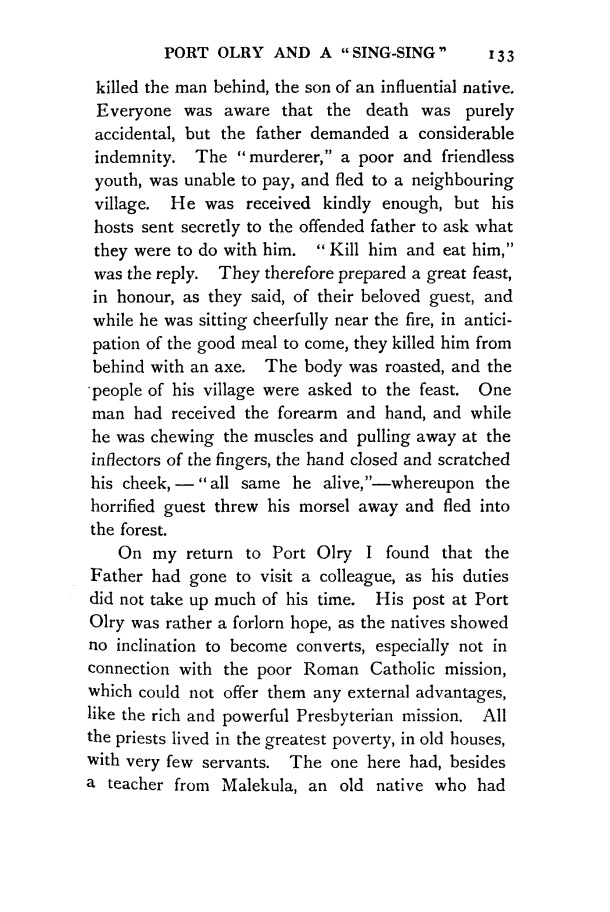|
|  [Note: this transcription was produced by an automatic OCR engine]
PORT OLRY AND A “ SING-SING” I 33
killed the man behind, the son of an influential native.
Everyone was aware that the death was purely
accidental, but the father demanded a considerable
indemnity. The “murderer,” a poor and friendless
youth, was unable to pay, and fled to a neighbouring
village. He was received kindly enough, but his
hosts sent secretly to the offended father to ask what
they were to do with him. “ Kill him and eat him,”
was the reply. They therefore prepared a great feast,
in honour, as they said, of their beloved guest, and
while he was sitting cheerfully near the fire, in antici-
pation of the good meal to come, they killed him from
behind with an axe. The body was roasted, and the
‘people of his village were asked to the feast. One
man had received the forearm and hand, and while
he was chewing the muscles and pulling away at the
inflectors of the fingers, the hand closed and scratched
his cheek,—“all same he alive,”—whereupon the
horrified guest threw his morsel away and fled into
the forest.
On my return to Port Olry I found that the
Father had gone to Visit a colleague, as his duties
did not take up much of his time. His post at Port
Olry was rather a forlorn hope, as the natives showed
no inclination to become converts, especially not in
connection with the poor Roman Catholic mission,
which could not offer them any external advantages,
like the rich and powerful Presbyterian mission. All
the priests lived in the greatest poverty, in old houses,
with very few servants. The one here had, besides
a teacher from Malekula, an old native who had
|